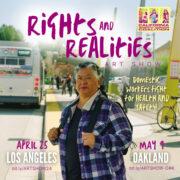(This article is part 2 of 2 parts)
HERE are some more misconceptions about bankruptcy that we did not discuss last week:
1. Will I lose my house?
Normally, debtors get to keep their residence as long as their equity in the house does not exceed the applicable homestead exemption. If the equity of the house is within the limits of the homestead exemption, then the house does not become part of the bankruptcy estate that is subject to trustee administration for the benefit of creditors. In other words, there is no risk of losing the house to the trustee in a Chapter 7 case. Real estate values are high now after losing half their values between 2007 and 2009 during the mortgage crisis created by Wall Street greed with their bundle mortgages. If you recall, it was easy to buy a house for a couple of years before the mortgage crisis. You could buy a house with zero down with no income qualification. All you had to do to buy a house then was have a name and social security number. You didn’t even have to be alive. Even if you were buried six feet underground, as long as you had a social security number, there was a house of your dreams waiting for you to move into. In fact, a lot of dogs with fake social security numbers were able to buy houses too. I kid you not.
I had many clients back then with minimum wage jobs who were able to buy $1 million mansions. The idea was to keep the house for a few months then sell it for a profit. Since house prices kept on going up, the $1-M mansion that you bought with zero down would be worth $1.2-M in three months. After deducting holding costs of $30,000, there was a cool profit of $170,000 to be made in three months. Practically everyone and their mothers became mini Trumps. Some would buy 10 rental properties with the intention of selling them in a couple of months for a profit of $50,000 each. With ten rentals, you could make $500,000 in six months. Do it twice in a year, and you could be a cash millionaire in one year. I had clients with rentals in Texas, Arizona, Florida, and of course, here in California. They all became landlords. Then, the bubble exploded and real estate lost more than half their values at their peak.
Well, real estate values are now back up even surpassing their peak just before the bubble burst. So debtors now have to pay attention to what the current values of their houses are. It’s easy to get an appraisal of the current value of your house. You can go online and have an e-appraisal done in less than two minutes.
The homestead exemptions in California are $75,000 for a single person, $100,000 for a person with a qualifying relative who lives in the house, and $175,000 for seniors who are at least 65, or 55 but who earn less than $35,000 with the spouse. For instance, your house is now worth $500,000 and the balance of your first mortgage is $325,000. You just turned 65 yesterday. Then, your house is exempt because the entire equity of $175K is covered because you are 65.
If you the equity of your house in just in excess of the homestead exemption, the better part of caution requires that you file a Chapter 13, not a 7. Chapter 13 trustees do not have the power to sell debtor houses but Chapter 7 trustees do have that power.
2. What happens to the cars?
There are two systems of exemption. You choose one of them. You cannot mix them both. System one allows $3,050 for the equity of one car while system two allows $5,100 for the equity of any number of cars. Let’s say you have a 2015 Mercedes Benz E 350 with a loan balance of $38,000 while the current value of that car is $35,000. You also have 2015 SUV Land Rover with a loan balance of $45,000. That SUV is currently valued at $40,000. Will you be able to exempt these two luxury vehicles if you filed for Chapter 7? Of course you can. Why? Because both cars have zero equity. In order to keep these two cars, you have to continue making timely payments even if you filed for bankruptcy and you may have to reaffirm the car loans. Some creditors do not require reaffirmation. Some do. For creditors who require reaffirmation, even if you are current on the car payment, they have the right to repossess if no reaffirmation was timely filed and approved by the Judge.
3. Can you keep your retirement accounts?
Generally speaking, retirement accounts are exempt up to $1.0-M. So most debtors do not have any problem exempting their retirement accounts. Most people do not have $1.0-M of retirement funds. I tested the retirement exemption once a couple of years ago when the client had almost $920,000 of retirement funds. He was given an early retirement at the age of 55 and he opted for a lump sum retirement of $920,000. His retirement account had ballooned into $920,000 because the stock market was on the rebound from the 2007 market crash. Once the money was paid to him he had 60 days to roll it into an IRA. Since the money was large and was had not yet been rolled into an IRA, I was concerned that the trustee might dispute the status of the funds as not being retirement funds since the $920,000 had not yet become an IRA, although debtor’s intent was to make it an IRA. He was still in the process of looking for a financial advisor.
Fortunately, the trustee did not dispute the applicable exemption that we used to cover the $920,000.
4. Can you continue operating your business?
In Chapter 13, operating a business is absolutely no problem. In Chapter 7, you can continue operating your business if certain conditions are met. If the business is a sole proprietorship, the debtor must exempt the net worth of the business and must have liability insurance for the business that is enough to satisfy the trustee that the insurance is big enough to cover any potential liability from a third party. If the business is an S or C corporation, LLC or partnership, the debtor must exempt the value of his shares in the corporation, LLC or partnership.
“MAY THE GOD OF HOPE FILL YOU WITH ALL JOY AND PEACE AS YOU TRUST IN HIM, SO THAT YOU MAY OVERFLOW TIH HOPE BY THE POWER OF THE HOLY SPIRIT.” ROMANS 15:13
* * *
Disclaimer: The foregoing is an expression of opinion and is not meant to be legal advice to any reader. There is no attorney-client relationship established by this article with the reader. If you want to discuss your situation, you have to set an appointment to consult with the attorney. The first general consultation is free.
* * *
Lawrence Bautista Yang specializes in bankruptcy, business, real estate and civil litigation and has successfully represented more than five thousand clients in California. Please call Angie, Barbara or Jess at (626) 284-1142 for an appointment at 1000 S. Fremont Ave, Mailstop 58, Building A-1 Suite 1125, Alhambra, CA 91803.




